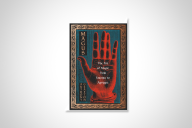You have /5 articles left.
Sign up for a free account or log in.
The end of University Press Week seems like a good moment to point out some titles forthcoming in the spring 2022 season. About half of the catalogs are now available, with the rest still in production, so there’s no claim to comprehensiveness in this roundup. I’ll do another in due course.
My wont with these occasional previews is to assemble titles that share a topical or thematic element, or otherwise hang together as if linked by invisible threads. Quoted material below is taken from the catalog descriptions, while the publication dates given here are based on information at the presses’ websites, which may vary from what online booksellers may indicate.
A sizable literature on contemporary authoritarianism has accumulated over the last decade. In Spin Dictators: The Changing Face of Tyranny in the 21st Century (Princeton University Press, March), Sergei Guriev and Daniel Treisman flag a new, more sophisticated brand of despotism that relies on “less violent, more covert and more effective methods of monopolizing power” than old-school dictators. This “new breed of media-savvy strongmen,” including Vladimir Putin in Russia and Recep Tayyip Erdogan in Turkey, follow a model pioneered by “leaders such as Singapore’s Lee Kuan Yew and Peru’s Alberto Fujimori … [who] cultivated an image of competence, concealed censorship, and used democratic institutions to undermine democracy, all while increasing international engagement for financial and reputational benefits.”
The authors promise to clarify how authoritarianism has survived “in an age of growing modernity.” Then again, the place of modernity in authoritarianism, and vice versa, has been a topic of political and historical interest since at least Mussolini’s March on Rome, which has its centenary next year.
Widely held delusional beliefs are the demagogue’s stock in trade, and the supply is now constantly replenished on a variety of mass media platforms. Richard L. Hasen’s Cheap Speech: How Disinformation Poisons Our Politics—and How to Cure It (Yale University Press, March) parses “the current debates over free speech, censorship and Big Tech’s responsibilities” to consider the damage to American political life inflicted by “the flood of virally spread disinformation and the collapse of local news reporting.” The author, an expert on election law, focuses in particular on the threat to the electoral process, with an eye to how to mitigate the effects of “disinformation campaigns aimed at suppressing voter turnout” without violating the First Amendment.
So that the ideal of reasoned deliberation based on ascertainable facts may not perish from the earth, Frederick Schauer offers The Proof: Uses of Evidence in Law, Politics, and Everything Else (Harvard University Press, April). The author “combines perspectives from law, statistics, psychology, and the philosophy of science to evaluate how evidence should function in and out of court.” In judging the significance and credibility of evidence, context counts: “Law, science, historical scholarship, public and private decisionmaking—all rely on different standards of evidence.” (A skillful and experienced liar knows how to exploit the wiggle room between them.) The Proof is meant to boost the power of reason by showing “evidence as a pervasive problem, not just a matter of legal rules.” The obligation to make judgments of validity is part of the human condition.
Then again, maybe we’ll just let the robots do it. Ben Shneiderman’s Human-Centered AI (Oxford University Press, January) is “an optimistic realist’s guide to how artificial intelligence can be used to augment and enhance humans’ lives.” Offering a preview of how “future applications will support health and wellness, improve education, accelerate business, and connect people in reliable, safe, and trustworthy ways that respect human values, rights, justice, and dignity,” the author emphasizes the need for AI tools to be designed and tested with human compatibility in mind.
Elyakim Kislev anticipates still more intimate degrees of compatibility in Relationships 5.0: How AI, VR, and Robots Will Reshape Our Emotional Lives (Oxford University Press, April). Such developments as artificial intelligence–based psychotherapy and avatar friendships “aren’t as risky as we’d once thought, but can instead make our social and emotional lives richer and more diverse.” Indeed, the author argues “that we are currently living through a technological paradigm shift similar in magnitude to the preceding agricultural, industrial and informational revolutions in human history”—thanks to “technology [that] can now fulfill emotional, intellectual, and physical needs that have until now been met by other humans.” (Someone’s going to try to marry Alexa eventually. Just you wait.)
While the distance between people and their devices continues to shrink here on Earth, Donald Goldsmith and Martin Rees anticipate an all-android era of space travel in The End of Astronauts: Why Robots Are the Future of Exploration (Harvard University Press, March). “In space humans require air, food, and water, along with protection from potentially deadly radiation and high-energy particles, at a cost of more than ten times that of robotic exploration,” they write. Short of some really extreme tinkering with the human genome, the robot advantage can only improve. The authors also consider “how spacefaring AI might be regulated as corporations race to privatize the stars.” Earthbound humanity may yet roam the solar system, but only thanks to its robotic pathfinders.
Finally, Brian Michael Murphy considers the realm inhabited by our digital ghosts in We the Dead: Preserving Data at the End of the World (the University of North Carolina Press, June): “the ever-expanding collection of records that now accompany each of us from birth to death” and a complex of data systems stored away “in refrigerated vaults, sanitized by gas chambers, and secured within bombproof caverns deep under mountains.” The media of transmission vary “from microetched metal discs to cryptocurrency keys written in synthetic DNA”—which really does sound like the premise for a biopunk novel involving a simultaneous global pandemic and financial collapse. The storage system “backs up and protects our most vital information against decay and destruction, and yet it binds us to corporate and government institutions whose power is also preserved in its bunkers, infrastructures, and sterilized spaces.” There must be someone, somewhere, who finds this comforting.








